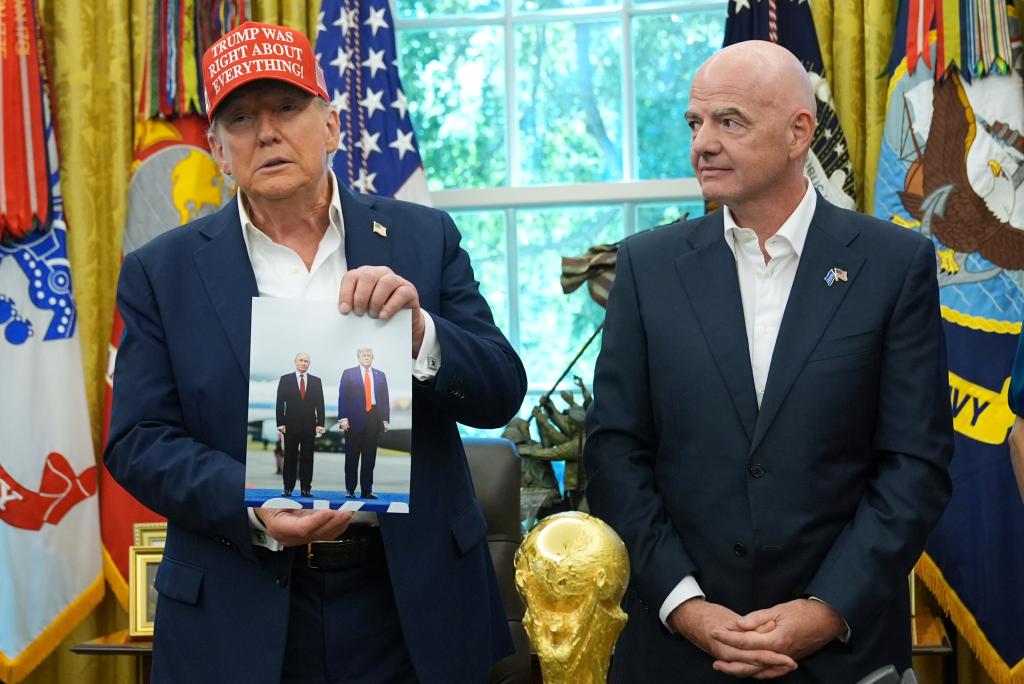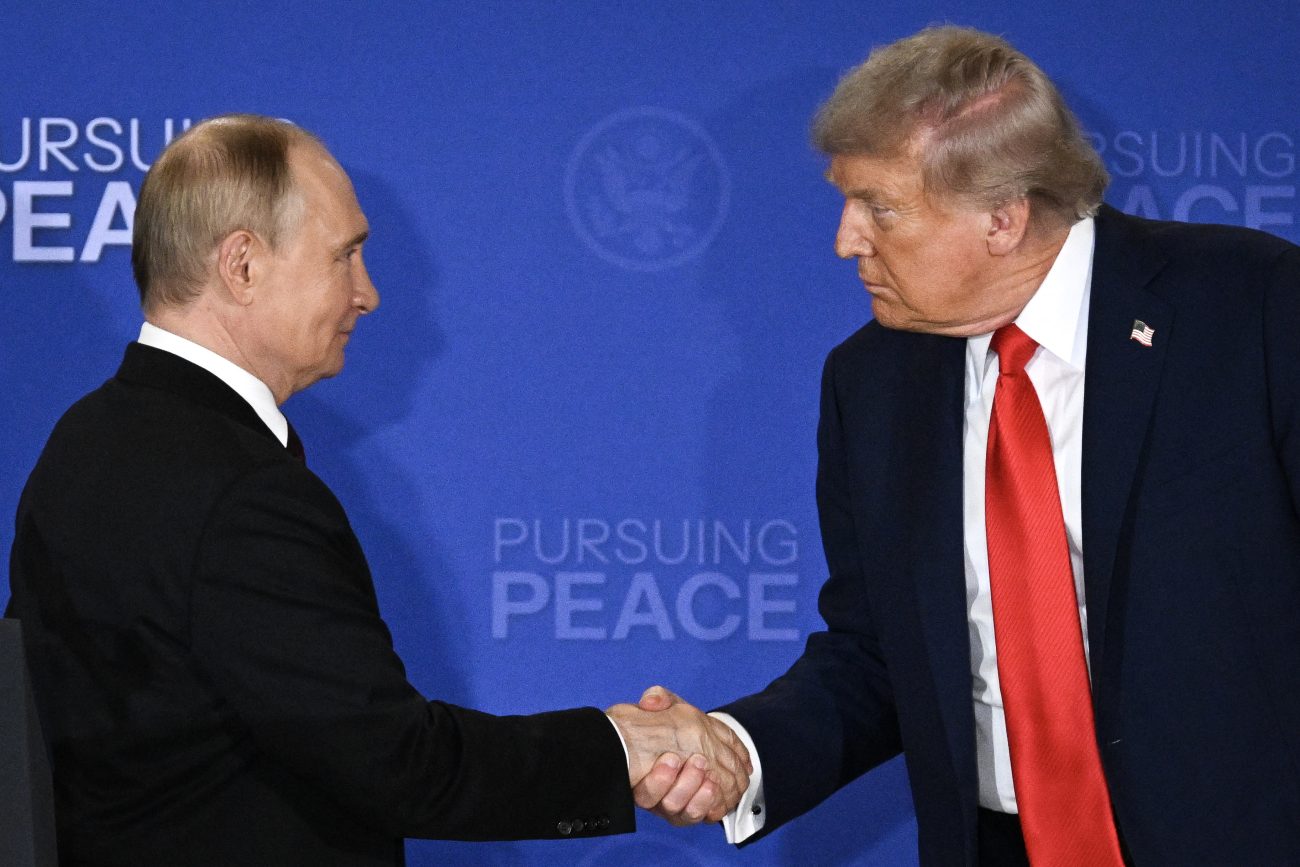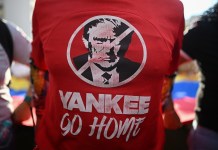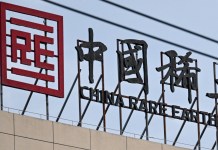India has now been slapped with staggering 50% tariffs on several sectors, following the additional 25% tariffs that came into effect on August 27 as a penalty for importing Russian oil. However, the largest US energy company, Exxon, is itself exploring the option of resuming business with Moscow — a move that reeks of American double standards.
Earlier this month, US President Donald Trump trained his guns on India, lambasting it for buying cheap Russian oil. He claimed that India’s purchase of oil from Moscow was fuelling Putin’s war against Ukraine, and gave India until August 27 to end the purchase or face an additional 25% tariff, which would make Indian exports to the US uncompetitive.
“I don’t care what India does with Russia,” Trump later claimed on Truth Social, his social network, last month. “They can take their dead economies down together, for all I care.” Later, the White House Trade Advisor, Peter Navarro, stated that India was the Kremlin’s “laundromat,” arguing that India did not need Russian oil.
India’s Minister for External Affairs (MEA) called the tariff an unfair targeting, citing the examples of China and Europe, which buy more oil and LNG from Russia, respectively.
On a trip to Moscow earlier this month, S. Jaishankar stated that it was Washington that encouraged India to help stabilise global energy markets by purchasing Russian oil. In a nutshell, New Delhi has indicated that it is in no mood to end its purchase of Russian oil, which is crucial for its energy security.
A new exclusive Wall Street Journal report establishes that India has indeed been unfairly targeted. It makes an explosive revelation: a senior ExxonMobil official has been in secret talks with Russia’s largest state-owned energy company, Rosneft, to return to the massive Sakhalin project, pending approval from both governments as part of a potential peace process in Ukraine.
Notably, these claims come days after Donald Trump hosted Russian President Vladimir Putin at a military facility in Alaska.
The WSJ report states that Putin told reporters in Alaska that the two countries could do more business with each other—for example, between their Pacific coasts, and in a shocking response, Trump said, “We look forward to dealing.”

The visit has already been seen as a clear victory for Russia and its President, who had been shunned by the West after its invasion of Ukraine. Heavily sanctioned and regularly criticised for his war, the Russian President received a warm welcome from Donald Trump.
Interestingly, after the summit, Trump announced that he, along with the presidents of Russia and Ukraine, had decided that a peace deal is preferable to a ceasefire in the Russian-Ukrainian conflict.
The said “peace deal” would be contingent on Russian demands, such as keeping the region that it has occupied since the invasion, and recognition of Crimea as Russian territory.
Despite this, Exxon seems to be preparing for business. This raises eyebrows, especially since the nexus between the US industry and its foreign policy is well-known.
US Energy Giant Returning To Russia?
According to the WSJ report, only a few people at Exxon were aware that the discussions had taken place, indicating the sensitivity of the situation. Senior Vice President Neil Chapman, one of the senior executives of the US oil firm, spearheaded the negotiations on the Exxon side, the report said, citing informed sources.
It must be recalled that Exxon had to fully exit Russia in October 2022, months after the invasion of Ukraine, which led to widespread international sanctions on Russia.
“With two decrees, the Russian government has unilaterally terminated our interests in Sakhalin-1, and the project has been transferred to a Russian operator,” an Exxon Mobil spokeswoman said in an official statement.
The company emphasized that it would reserve its legal rights under international law and its production-sharing agreement to pursue remedies.
The WSJ report states that during the Biden and Trump administrations, the Treasury Department granted US clearance and licenses to Exxon and other firms to engage in discussions with Russian counterparts regarding stranded assets. In fact, the negotiations began in 2022, shortly after Exxon left Russia.
Exxon never seriously considered the idea of backing down, despite the imposition of sanctions and a strongly worded position taken by the US.
“Exxon executives have asked the US government for support if the company goes back to Russia, and received a sympathetic hearing, said a senior administration official. CEO Darren Woods discussed Exxon’s possible return with Trump at the White House in recent weeks,” claims the WSJ report.
Exxon, the largest oil producer in the West, made more investments in Russia than most other businesses since the collapse of the Soviet Union. Named after a Russian island next to the three oil resources, Sakhalin-1 was one of Exxon’s largest investments, initially approved in 1995. Exxon managed the business and held a 30% stake, along with state-owned Rosneft and Japanese and Indian companies, which remain in place.
“Enticing Exxon back would represent a coup for the Kremlin, which wants to draw Western investment as part of the peace talks to stabilize the economy. A return isn’t guaranteed and depends in part on whether Trump succeeds in brokering an end to the Ukraine war, or instead tightens sanctions if Putin refuses to stop fighting.”
Despite sanctions, Russia’s oil industry has continued to maintain strong oil production. However, analysts predict that a lack of investment and expertise will ultimately lead to a reduction in production capacity.

The Reconciliation Under Trump’s Watch
The discussions between Rosneft and Exxon, which were already underway under the Biden administration, intensified during Trump’s inauguration as President in January 2025, according to a WSJ report.
When top US and Russian government officials publicly met in Riyadh, Saudi Arabia, in February for discussions aimed at ending the war, Russia offered American businesses new business opportunities, including the possibility of investing in Arctic energy projects.
Exxon’s Chapman met Rosneft CEO Igor Sechin in private in Doha, the capital of Qatar, according to some persons with knowledge of the conversations.
Notably, Sechin is a close ally of President Putin and has been subject to blocking sanctions by the US, which essentially prohibits Americans from dealing with him without obtaining a specific Treasury license, similar to those held by Exxon.
The WSJ also referred to a previous Reuters report stating that U.S. and Russian government officials discussed energy deals this month, including Exxon’s possible return.
“There is a template for Exxon to get involved at Sakhalin: the production-sharing deal the consortium struck with the Russian government in the 1990s. Oil began flowing in 2005. Exports from Sakhalin mostly go to Asian buyers, who kept buying Russian crude after the invasion, in contrast to European companies that forswore it,” it stated.
Putin eliminated one barrier to Exxon’s comeback on the same day as the conference in Alaska. An order he signed permits foreign corporations to own stock in the Russian company that has operated Sakhalin since Exxon’s departure. Among the requirements are supplying equipment and spare parts from outside and advocating for the lifting of restrictions.
Exxon has maintained close ties with Putin for decades. According to some individuals aware of the talks, Exxon has maintained open back-channel lines of contact with state-owned Rosneft throughout the conflict, despite the animosity following the 2022 invasion.
Sakhalin was a small but reliable source of crude oil, contributing around 3% of its oil production until Exxon left. Additionally, Rosneft and the firm were collaborating to create natural gas reserves for export as a frozen liquid on tankers.
Exxon and other Western energy companies would be thrilled to go take advantage of Russian energy reserves. As for Rosneft, it intends to benefit from Exxon’s financial resources, technological expertise, and managerial experience.
All said and done, it is pertinent to highlight that all the discussions taking place under Trump’s watch and with his blessings seem to be a double game played by the US President. If Trump allowed Exxon to pursue potential business with an eye on a future peace deal, the hostility with which India’s purchase of Russian oil is being treated is a gross exaggeration and injustice. It appears to be an insidious approach signalling: “business for me, sanctions for thee.”
Should these claims be proven, India would have every reason to push back harder.
China imports more oil from Russia than India, whereas Turkey, a NATO ally, is the biggest importer of Russian oil in the Western Hemisphere. The European Union’s trade with Russia totaled $77.9 billion in 2024, surpassing India’s $68.7 billion.
Now, the US Exxon joins the league.
- Contact the author at sakshi.tiwari9555 (at) gmail.com
- Follow EurAsian Times on Google News




